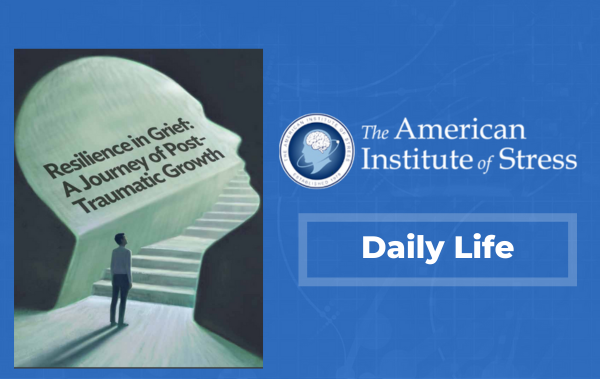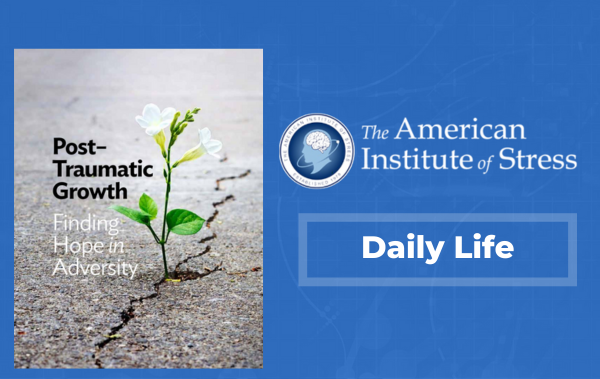These are the “legs” that solidly anchor people to a healthy, happy existence.
KEY POINTS
- Some things, like wanting to be liked by everyone, are near guarantees of stress and unhappiness.
- Other factors are highly associated with health and happiness.
- Like a tripod that is a very strong and stable structure, these are three “legs” that can keep people solidly anchored to a stable life.

During my 30-plus years in clinical practice, I have come to realize that there are some common psychological toxins that will almost inevitably lead to unhappiness. For instance, don’t try to please or be liked by everyone. You will fail and make yourself miserable in the process. The recipe for happiness, however, is much more individualistic. Nevertheless, there are a few ingredients that seem very strongly associated with mental and physical wellness. While ideally part of a routine lifestyle, many, including myself, have found these factors to be extremely insulating from the stress and strain of the COVID-19 pandemic.
Indeed, in my view, these “ingredients” are the legs of the tripod that support our lives and lifestyles regardless of the prevailing circumstances. And much like a tripod, these three legs provide an extremely strong and stable base to support and anchor us, especially during extraordinary times.
When we consider the idea of a tripod, its three legs create a foundation of great strength and stability. To extend the metaphor, a two-legged structure can also have a fair degree of balance, but something standing on only a single leg will inevitably be unbalanced and wobbly.
Here are the three ingredients, or the tripod’s “legs,” that usually help people feel balanced in their lives and less vulnerable to the corrosive effects of excessive stress:
1. Work
Work encompasses a great deal, as do all of the subjects in this post. In essence, work is any productive, purposeful, constructive, or meaningful behavior a person engages in regardless of matters like monetary remuneration. Obviously, most people work out of the sheer economic necessity of needing to earn a living. In those—the vast majority of—cases, the hope is one’s work allows one to extract some sense of gratification and purpose in addition to monetary compensation.
Even people who don’t have to work, despite the financial realities that most people need to contend with, would still do well to engage in regular, purposeful, and constructive activity. For example, volunteering, diving into a hobby, or simply focusing on activities related to parenting, homemaking, or helping out with parental and extended family matters. Thus having the routine of purposeful work creates some direction and provides some structure and meaning to our lives.
2. Workout
Workout refers to the entire spectrum of physical activity and exercise. It is incontrovertible that a high baseline of physical activity in addition to regular vigorous exercise—like brisk walking, running, cycling, racket sports, etc.—has tremendous benefits for not only the body but also the mind and emotional regulation. Thus, maintaining a routine that includes consistent movement and structured exercise is immensely beneficial, especially during times of mounting stress. This is because an extensive body of research has shown that exercise produces similar changes in brain activity as those produced by antidepressants and other psychotropic medications.
Hence, my common refrain in discussing treatment options with my patients is, “Usually, the more you do about it, the less you’ll need to take for it.” Naturally, this is true not only for emotional regulation but also for general metabolic health, such as sugar control, blood pressure management, and keeping cholesterol levels in the desirable zone—to name only a few ways in which regular physical exercise dramatically improves physical health.
3. Hang out
Hanging out basically refers to downtime. It involves the full range of love, intimacy, friendship, and other kinds of meaningful relationships, including the profound emotional bonds we can have with our pets. It includes spending time with family, getting together with friends, petting or playing with a pet, and also enjoyable solitary time (e.g., listening to music, reading something fun, going for a stroll, taking a nap, working on a hobby, and even streaming movies and web surfing). Basically, “hang out” means kicking back, relaxing, recreating, and enjoying the parts of life that are not rooted in the soils of work and exercise.
Of course, some of these boundaries blur because, for some people, they are not easily compartmentalized. For instance, some individuals find engaging in some enjoyable work-related or occupational tasks to be part of their hang-out time. And some people, whether or not they are actively employed, might consider their workout time to be an effortful, constructive, and productive activity: that is, “work.”
Also, the legs of my metaphorical tripod are not always symmetrical or always balanced. There are times when the “work” leg needs to assume a much greater proportion than the others, and other times when a different “leg” stands bigger and firmer than the others. For example, the “hang out” leg may grow when one is on vacation or visiting with family and friends. But as long as one maintains some degree of balance and proportion among them, they will remain solidly connected to a foundation of life that provides great strength and stability. And this seems to insulate people from a great deal of stress while optimizing their biopsychosocial health.
Remember: Think well, act well, feel well, and be well!
By Clifford N. Lazarus, Ph.D., is Clinical Director of The Lazarus Institute.Online:
This post is for informational purposes only. It is not intended to be a substitute for professional assistance or personal mental health treatment by a qualified clinician. The advertisements contained in this post do not necessarily reflect the author’s opinions, nor are they endorsed by him.





